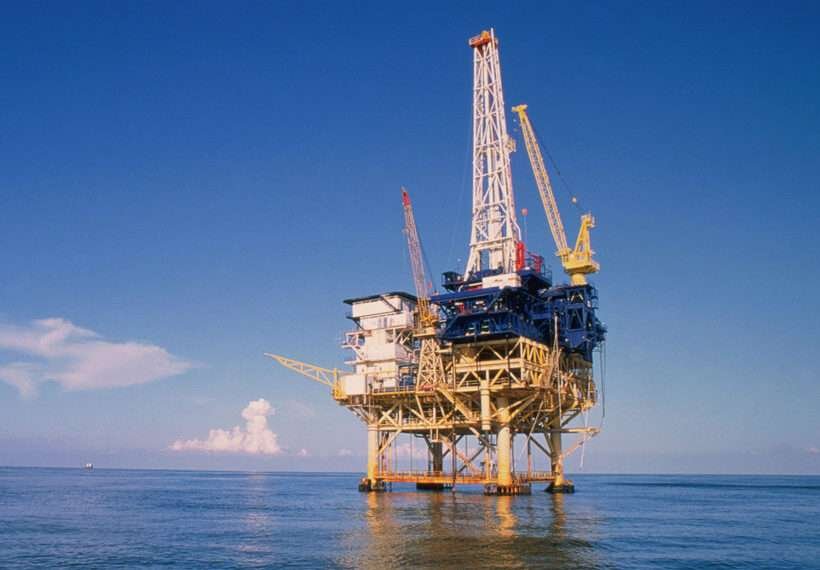The Institute for Energy Policies and Research (INSTEPR) has raised alarm over the Ghana National Petroleum Corporation (GNPC) sale of interest in Jubilee, TEN oil fields to PetroSA.
Implicating documents have come to light, indicating that GNPC is currently considering the sale of 50% of the acquired interest to PetroSA, a South African oil company.
This revelation left many stakeholders worried for the state, with many questioning the rationale behind the move. By selling a significant portion of Ghana’s oil revenue, the GNPC leadership appears to be compromising the country’s economic prospects and potentially undermining its ability to fund crucial development initiatives.
The transaction, if approved, would effectively dilute Ghana’s stake in the oil blocks and redirect a substantial portion of the revenue to South Africa.
The Acting CEO and Board Members of Ghana National Petroleum Corporation (GNPC) are caught at the center of the brewing controversy surrounding the acquisition and subsequent sale of a significant portion of the country’s interest in the Jubilee and TEN oil blocks. This move has raised eyebrows among industry experts and ignited concerns over the responsible management of Ghana’s valuable oil resources.
The potential transaction, which involves the sale of 50% of the recently acquired interest to PetroSA, a South African oil company, has not only drawn criticism from key stakeholders but also sparked a dispute between the sector Minister and GNPC.
Background of the Deal
On April 1, 2021, Ghana, through GNPC, acquired a 7% commercial interest in the Jubilee and TEN blocks from Occidental Petroleum (OXY), using a substantial sum of $199 million, funded by taxpayer money.
The move was Initially framed by GNPC as a strategic step aligned with the corporation and the government’s long-term vision of increasing the country’s participation stakes in viable oil blocks. With the acquisition, Ghana’s overall interest in the oil fields rose to 20.64%, potentially securing substantial revenues for the country, considering the daily production of approximately 130,000 barrels of crude oil.
However, the controversy deepens as the Minister of Energy, known by the acronym NAPO, voiced his opposition to the proposed transaction.
In a letter addressed to GNPC, the minister explicitly requested the corporation to halt any discussions with PetroSA, emphasizing the importance of acting in Ghana’s best interests. NAPO’s intervention underscores the gravity of the situation, pitting the minister against the GNPC leadership and highlighting the underlying tensions surrounding the management of the nation’s oil resources.
Amidst this contentious environment, the Institute for Energy Policies and Research (INSTEPR) has emerged as a vigilant watchdog, actively monitoring the developments at GNPC and gathering additional information.
As an independent energy-focused organization, INSTEPR has a vested interest in ensuring transparency, accountability, and responsible governance in the sector. With the potential approval of the controversial transaction on the horizon, INSTEPR has vowed to take necessary action to safeguard Ghana’s revenue and protect the nation’s interests.
According to INSTEPR, the implications of this oil deal, should it proceed as planned, could be far-reaching for Ghana’s economic trajectory. With the nation already relying on financial support from institutions like the International Monetary Fund (IMF), maximizing revenue from its natural resources becomes paramount for sustainable development and reducing dependency.
Ghana’s acquisition of the additional 7% interest in the oil blocks was seen as a positive step towards enhancing the country’s economic standing. However, the potential sale of a significant portion of this interest to PetroSA threatens to unravel the progress made and raises questions about the stewardship of Ghana’s resources.
INSTEPR said as it diligently monitors the situation and prepares to take action, it is crucial for all stakeholders, including government officials, industry experts, and concerned citizens, to engage in a constructive dialogue and seek a resolution that preserves Ghana’s long-term interests.
The outcome of this transaction will not only shape the financial fortunes of the country but also test the resilience and effectiveness of Ghana’s governance mechanisms in ensuring the responsible exploitation of its natural resources.
As Ghana’s development aspirations and financial stability hang in the balance, the Institute for Energy Policies and Research (INSTEPR) has stepped in to closely monitor the situation and take appropriate action to safeguard the nation’s revenue.



















